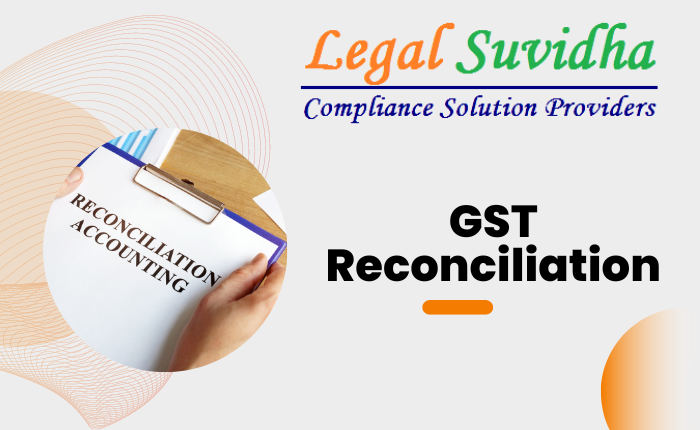GST reconciliation refers to the process of matching and comparing the data reported by businesses in their Goods and Services Tax (GST) returns with the data provided by their suppliers and other parties involved in the supply chain. The purpose of GST reconciliation is to ensure that the tax information provided by all parties is accurate and complete, thereby minimizing errors and discrepancies in the GST returns.
During the reconciliation process, businesses review their GST returns and compare them with the corresponding details provided by their suppliers. This involves matching invoices, purchase orders, and other relevant documents to verify the accuracy of the tax information reported. Any discrepancies or inconsistencies identified during this process can be rectified and adjusted to ensure the correct reporting of GST liabilities and credits.
GST reconciliation plays a crucial role in maintaining the integrity of the GST system and helps to identify any potential cases of tax evasion, fraud, or errors. It allows tax authorities to verify the accuracy of the tax returns filed by businesses and helps in detecting any mismatch or discrepancy in the reported data. By reconciling GST information, businesses can ensure compliance with GST regulations and avoid penalties or legal consequences associated with inaccurate reporting.
Overall, GST reconciliation is an important aspect of GST compliance, as it helps businesses and tax authorities ensure the accuracy and completeness of the tax information provided, fostering transparency and accountability in the GST system.
Why is GST Reconciliation required?
GST reconciliation is required for several reasons:
1. Accuracy of Tax Reporting: GST reconciliation ensures the accuracy of tax reporting by businesses. It allows businesses to cross-verify the information provided in their GST returns with the data from their suppliers and other parties involved in the supply chain. This helps identify any discrepancies or errors in the reported information and ensures that the tax liabilities and credits are correctly reported.
2. Detection of Errors or Discrepancies: Reconciliation helps in detecting errors, omissions, or inconsistencies in the GST returns. It provides an opportunity to review invoices, purchase orders, and other relevant documents to ensure that the tax information matches the actual transactions. By identifying and rectifying errors, businesses can avoid penalties or audits by tax authorities.
3. Prevention of Tax Evasion and Fraud: GST reconciliation plays a vital role in preventing tax evasion and fraud. It allows tax authorities to compare the data reported by businesses with the corresponding details provided by suppliers. This helps in detecting any deliberate misreporting, underreporting, or manipulation of tax information. Reconciliation acts as a deterrent to tax evasion and promotes compliance with GST regulations.
4. Compliance with GST Regulations: Reconciliation is a crucial part of GST compliance. Businesses are required to maintain accurate records and ensure that the tax information reported in their GST returns is correct. By reconciling their GST data, businesses can demonstrate their commitment to compliance and minimize the risk of penalties, audits, or legal consequences.
5. Input Tax Credit (ITC) Verification: GST reconciliation is essential for verifying the eligibility of Input Tax Credit (ITC). Businesses can claim ITC on the GST paid on their purchases or expenses. Reconciliation helps in matching the ITC claimed with the corresponding tax payments made by suppliers. This ensures that businesses are availing ITC only on valid and properly reported transactions.
Major and common issues with GST reconciliation
There are several major and common issues that businesses may encounter during GST reconciliation:
1. Mismatched Invoices: One common issue is when there are discrepancies between the invoices issued by suppliers and the invoices reported by businesses. This can happen due to errors in recording invoice details, such as incorrect invoice numbers, dates, or amounts. Mismatched invoices make it challenging to reconcile the GST data accurately.
2. Timing Differences: Timing differences between invoice issuance and reporting can lead to reconciliation issues. For example, if a supplier issues an invoice in one tax period but the recipient includes it in a different period, it can cause discrepancies in the GST returns. Resolving such timing differences requires careful review and adjustment of the reporting periods.
3. Missing or Duplicating Invoices: Another common issue is missing or duplicate invoices. Sometimes, businesses may overlook recording certain invoices, or multiple invoices with the same details may be reported. These discrepancies can create challenges during reconciliation and may require thorough investigation and rectification.
4. Data Entry Errors: Errors in data entry can occur during the recording of invoices or while preparing GST returns. Typos, incorrect tax codes, or wrong calculations can result in mismatched data during reconciliation. Businesses need to ensure accurate data entry and perform regular checks to minimize such errors.
5. Discrepancies in Input Tax Credit (ITC): Reconciling Input Tax Credit can be complex, especially when dealing with a large volume of transactions. Discrepancies may arise due to incorrect classification of purchases, ineligible ITC claims, or errors in matching the ITC claimed with the corresponding tax payments made by suppliers. Businesses need to closely review and reconcile ITC to avoid any compliance issues.
6. Non-Compliant Suppliers: In some cases, suppliers may not comply with GST regulations, leading to discrepancies in the reported data. They may not issue proper invoices, fail to report accurate tax information, or engage in fraudulent activities. Businesses need to identify and address such non-compliant suppliers to ensure accurate reconciliation.
7. Changes in Tax Rates or Regulations: Changes in tax rates, exemptions, or other GST regulations can also impact reconciliation. If businesses fail to update their systems or adjust their reporting methods accordingly, it can result in discrepancies during reconciliation. Staying up to date with GST changes and promptly implementing necessary adjustments is crucial to avoid issues.
Best Practices for Efficient GST Reconciliation
To ensure efficient GST reconciliation, businesses can follow these best practices:
1. Maintain Accurate Records: It is essential to maintain accurate and up-to-date records of all invoices, purchase orders, and other relevant documents. Businesses should ensure that the details recorded, such as invoice numbers, dates, amounts, and tax codes, are correct and match the information provided by suppliers.
2. Regular Reconciliation: Perform regular reconciliation to identify and rectify discrepancies in a timely manner. This includes comparing the data reported in GST returns with the corresponding details provided by suppliers. Regular reconciliation helps detect errors early, reducing the risk of accumulating reconciliation issues over time.
3. Adopt Automation: Leverage technology and automation tools to streamline the reconciliation process. Automated reconciliation software can help match invoices, identify discrepancies, and flag potential errors more efficiently. This saves time and minimizes manual effort, reducing the chances of human errors.
4. Cross-Verify Data: Cross-verify data between various sources to ensure consistency and accuracy. This includes comparing data within the business’s own records, as well as cross-checking with the information provided by suppliers, customers, and other parties involved in the supply chain. Cross-verification helps identify and rectify any inconsistencies or mismatches.
5. Address Discrepancies Promptly: If discrepancies are identified during reconciliation, take prompt action to investigate and rectify them. Reach out to suppliers or other relevant parties to resolve any discrepancies or obtain missing information. Timely resolution of discrepancies helps maintain accurate GST reporting and avoids issues in the future.
6. Update Systems for Changes: Stay informed about any changes in GST regulations, tax rates, or compliance requirements. Update your systems and processes accordingly to ensure accurate reporting and reconciliation. This includes updating tax codes, adjusting reporting periods, and implementing any necessary changes to align with the latest GST guidelines.
7. Educate and Train Staff: Provide proper training and guidance to staff involved in GST reconciliation. Ensure they understand the reconciliation process, the importance of accurate data entry, and the significance of compliance with GST regulations. Regular training sessions can help minimize errors and improve overall efficiency.
8. Communicate with Suppliers: Establish effective communication channels with suppliers to address any discrepancies or issues in a collaborative manner. Clear communication ensures that both parties are aligned in terms of the information being reported, reducing the chances of reconciliation discrepancies.
9. Conduct Internal Audits: Regularly conduct internal audits to review GST compliance and reconciliation processes. Internal audits help identify any systemic issues, improve internal controls, and ensure that best practices are being followed. They also help in proactively addressing any potential reconciliation issues.
10. Seek Professional Advice if Needed: If businesses face complex reconciliation issues or are unsure about certain aspects, it is advisable to seek professional advice from tax experts or consultants. They can provide guidance, offer solutions, and help navigate through challenging reconciliation scenarios.
By following these best practices, businesses can streamline the GST reconciliation process, minimize errors, and ensure accurate reporting and compliance with GST regulations.
If You have any queries then connect with us at [email protected] or [email protected] & contact us & stay updated with our latest blogs & articles





















